- What is meant by Copyright in India?
Copyright is the rights or protection given by the statute to the creators of literary, dramatic, musical and artistic works and the producers of cinematograph films and sound recordings. The rights provided under Copyright law include the rights of reproduction of the work, communication of the work to the public, adaptation of the work and translation of the work.
Read more at www.ssrana.in
- Can I apply to get copyright over titles and names in India?
Title or a name of any work creates an identity for that particular work. Under Indian Copyright Act, protection is conferred on literary works, dramatic works, musical works, artistic works, cinematograph films and sound recording but not to titles alone.
Read more at www.ssrana.in
- Is it necessary for me to register a work to claim copyright in India?
No, it is not necessary to register a work to claim Copyright. Copyright is voluntary. However, registration of provides a proof of ownership on the work created.
Read more at www.ssrana.in
- What is the procedure for registration of a work under the Copyright Act, 1957 in India?
- Application for registration is to be made as prescribed in the first schedule to the Rules; This application can be made by applying physically in the copyright office or through speed/registered post; or through e-filing facility available on the official website of Copyrights Office.
- Separate applications should be made for registration of each work;
- Each application should be accompanied by the requisite fee prescribed in the second schedule to the Rules ; and
- The applications should be signed by the applicant or the advocate in whose favor a Vakalatnama or Power of Attorney has been executed. The Power of Attorney signed by the party and accepted by the advocate should also be enclosed.
Read more at www.ssrana.in
- What is the fee for registration of a work under the Copyright Act, 1957 in India?
The fees details can availed from the official website of the Copyright Office available at http://copyright.gov.in/frmfeedetailsshow.aspx
Read more at www.ssrana.in
- Who can file an application for registration of copyright of a work in India?
Any individual who is an author or rights owner or assignee or legal heir can file application for copyright of a work either at the copyright office or by post or by e-filing facility from the copyright Office web-site “www.copyright.gov.in”.
Read more at www.ssrana.in
- Can unpublished works be registered under Copyright Act, 1957 in India?
Both published and unpublished works can be registered. Two copies of published or unpublished work may be sent along with the application. If the work to be registered is unpublished, a copy of the manuscript has to be sent along with the application for affixing the stamp of the Copyright Office in proof of the work having been registered. One copy of the same duly stamped will be returned, while the other will be retained, as far as possible, in the Copyright Office for record and will be kept confidential. It would also be open to the applicant to send only extracts from the unpublished work instead of the whole manuscript and ask for the return of the extracts after being stamped with the seal of the Copyright Office.
Read more at www.ssrana.in
- What is the term of Copyright in India?
Literary or musical or artistic works (other than photographs), are granted copyright protection for a period which extends through the lifetime of the author and 60 years from the year in which the author dies.
Read more at www.ssrana.in
- Can anyone use my Copyright without a license in India?
No, nobody can use the copyrighted work without license in India.
Read more at www.ssrana.in
- What are the rights of the registered owner of copyright in India?
Under the Copyright Act, the owner has certain exclusive rights to control the use of their copyright material, that is, to reproduce the work in copies, to prepare derivative works based upon the copyrighted work, to distribute copies of the copyrighted work to the public by sale, rental, lease, or lending. In the case of literary, musical, dramatic, and choreographic works, pantomimes, and motion pictures and other audiovisual works, to perform the copyrighted work publicly. In the case of literary, musical, dramatic, and choreographic works, pantomimes, and pictorial, graphic, or sculptural works, including the individual images of a motion picture or other audiovisual work, to display the copyrighted work publicly, and, in the case of sound recordings, to perform the copyrighted work publicly by means of a digital audio transmission.
Read more at www.ssrana.in
- Can moral rights be transferred, assigned or licensed?
Moral rights in a work of fine art can be waived, but they cannot be transferred, licensed or assigned.
Read more at www.ssrana.in
- What is online filing process for copyright registration in India?
All copyright applications can be filed by visiting the official website of copyright office at www.copyright.gov.in . The advantage of filing the application through e-filing facility is that it can be filed at the time or place chosen by the applicants.
Read more at www.ssrana.in
- Time taken for Copyright registration in India
The present timeline for getting a work registered is between 10–12 months from the date of filing the application. However, this is true only if no objections are raised in your application by the copyright office. In case of objection, registration will take longer.
Read more at www.ssrana.in
- Copyright Licensing in India
A copyright owner may grant a license to authorize the use of copyright work to a licensee. A licensee can use the copyrighted work without any claim of infringement or unauthorized use being brought by the owner of the copyright against the licensee. A license can be of two types: Voluntary License and Compulsory License.
Read more at www.ssrana.in
- What is a copyright?
Copyright is a legal right which grants the creator of a work exclusive rights to use and distribute the work.
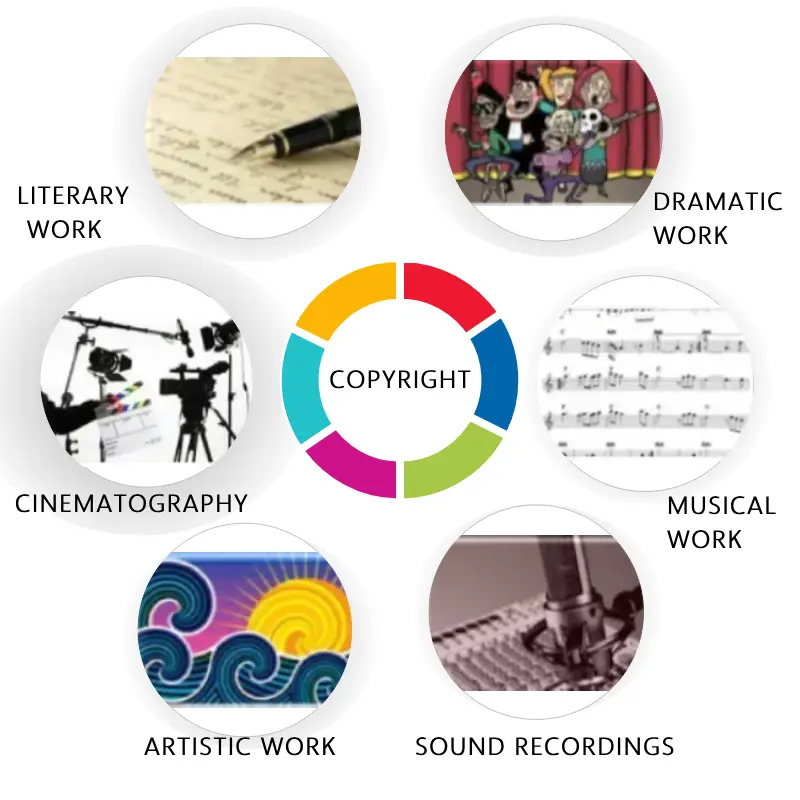
2. Is it mandatory to register a Copyright?
No, it is not mandatory. Copyright in a work subsists as soon as it is created.
It is advisable to register copyright as certificate of copyright registration can be used in the Court as proof in a dispute over the same.
3. Where can a copyright application be field?
Copyright can be filed only online at http://copyright.gov.in/.
4. What are the steps involved in filing a copyright?
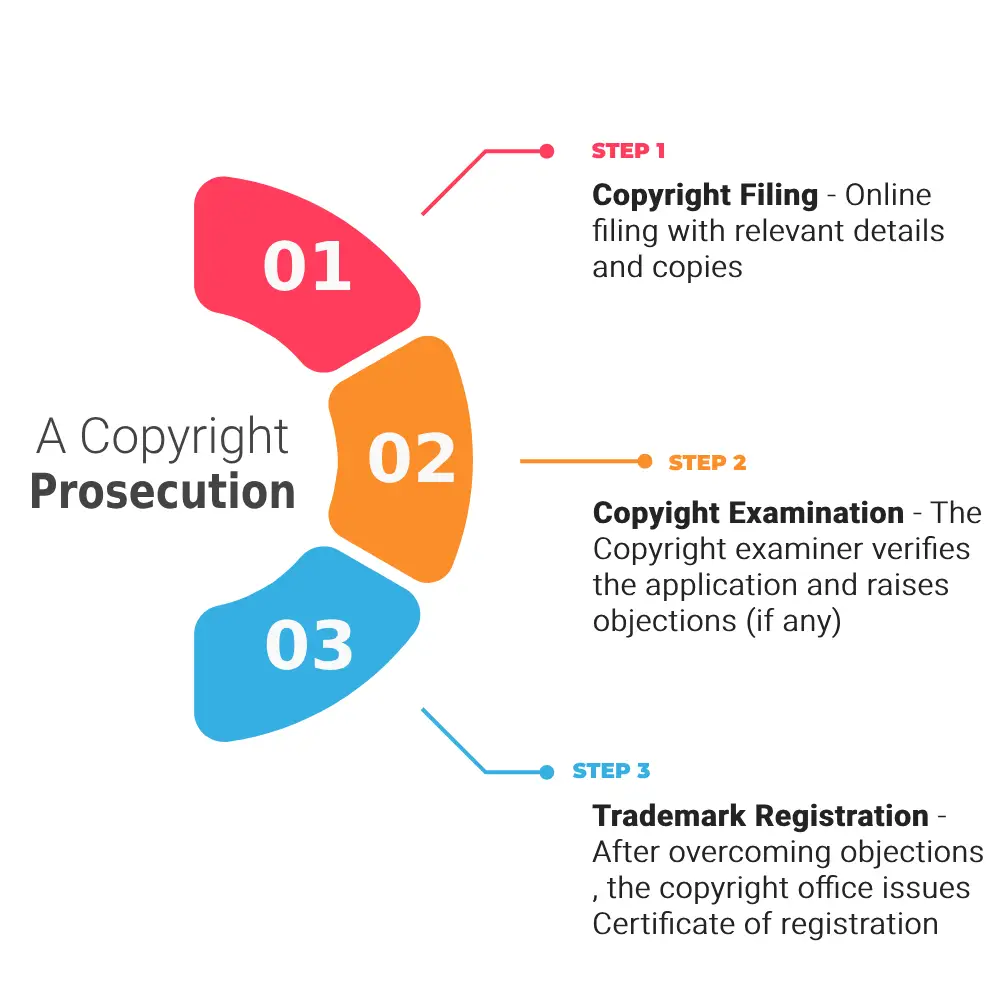
5. What is the term for copyright protection?
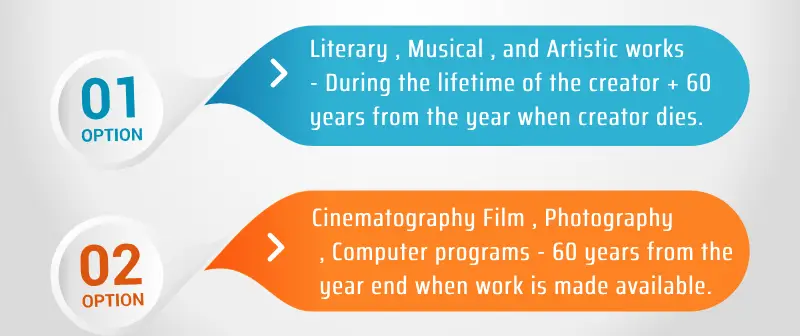
6. Copyright Indicator-![]()
7. Plagiarism and Copyright
Plagiarism includes:
-“copying and wrongful appropriation” and “stealing and publication” of another’s thoughts, expression and ideas;
– Representation of them as one’s own original work;
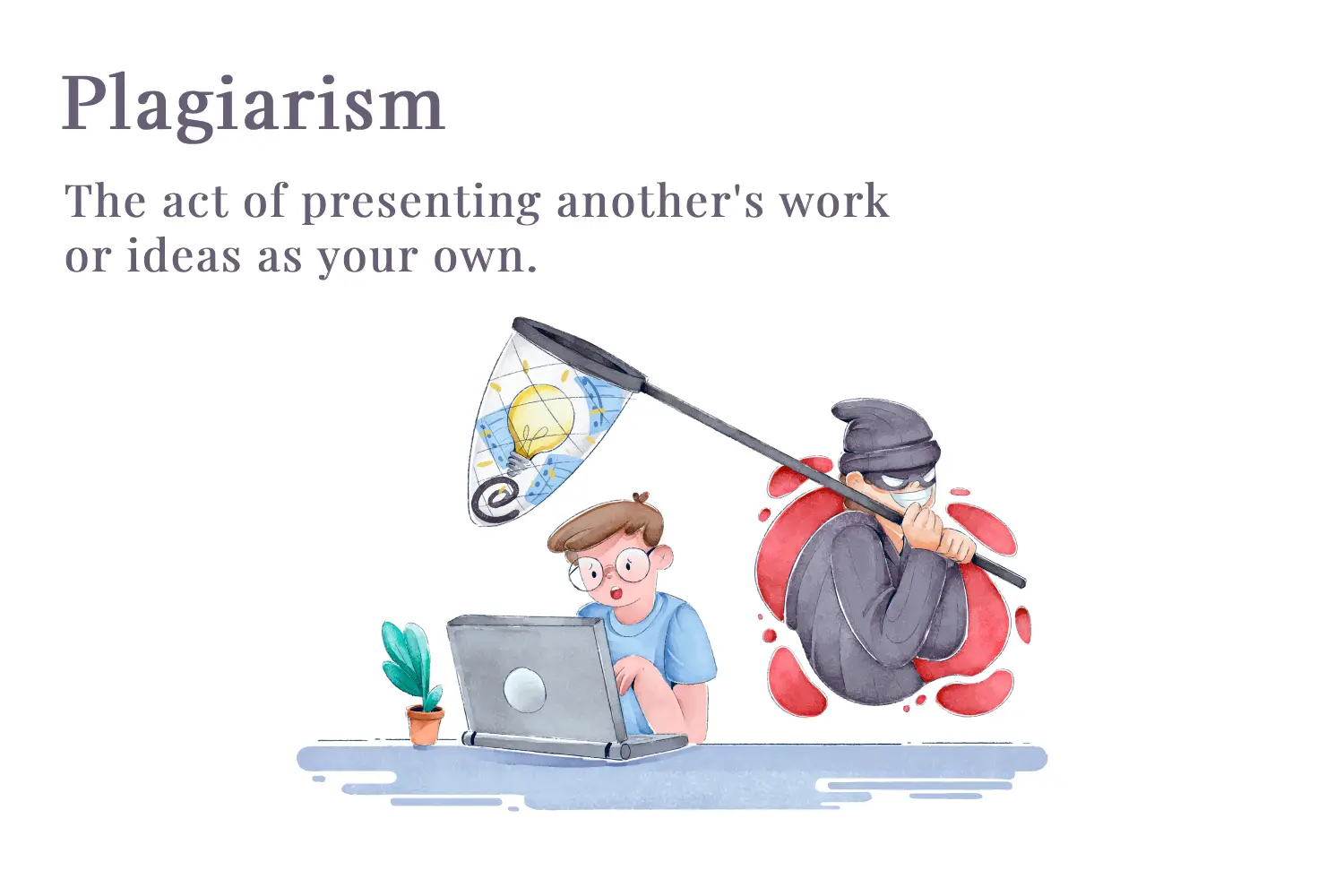
These days plagiarism is very common among students. Students copy content from internet and other sources for their assignments and projects. However, there are software and tools available online which can help teachers and professors to track plagiarism.
To know more about plagiarism in projects and how to avoid it, click onhttps://www.stinkyinkshop.co.uk/articles/ultimate-guide-to-images*
8. Example of Copyright
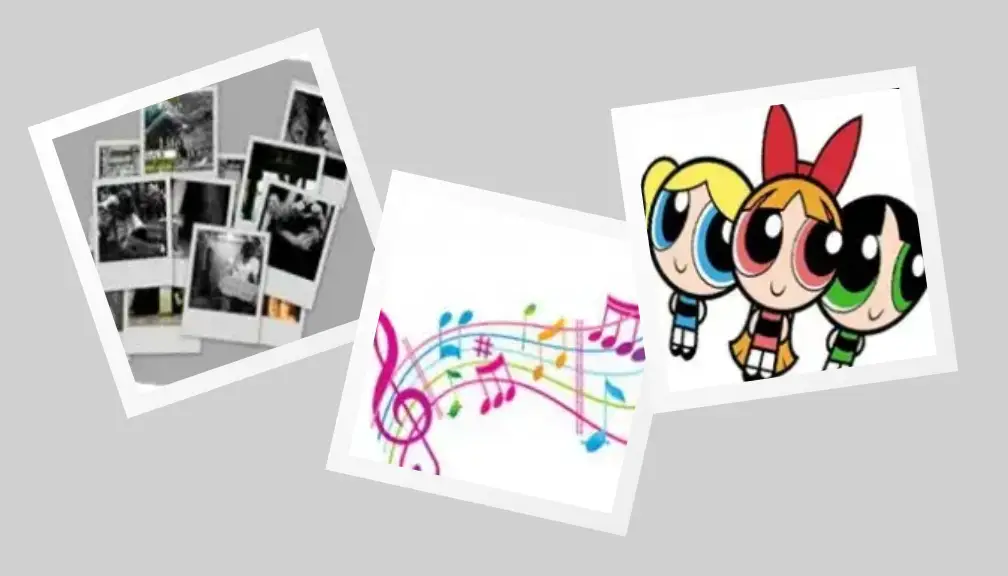
Note: * An independent knowledge sharing portal.
